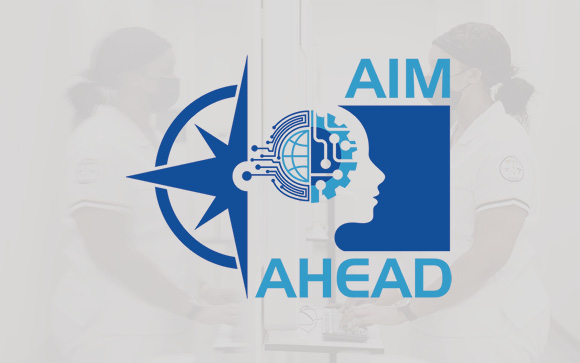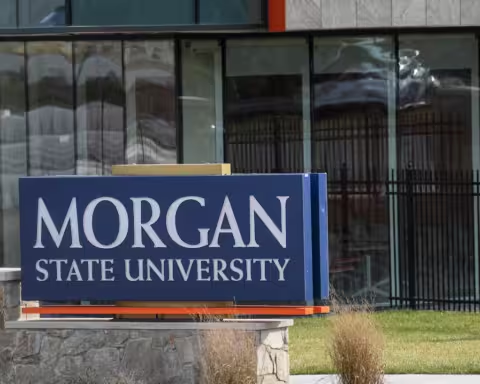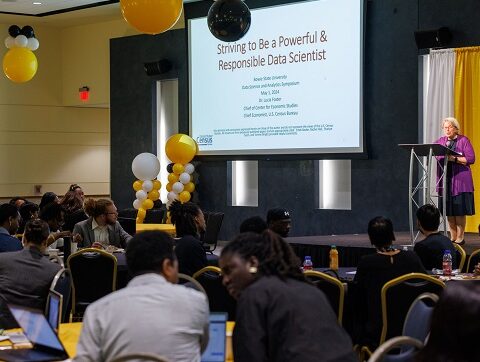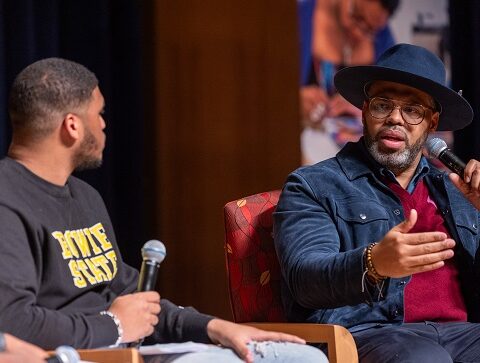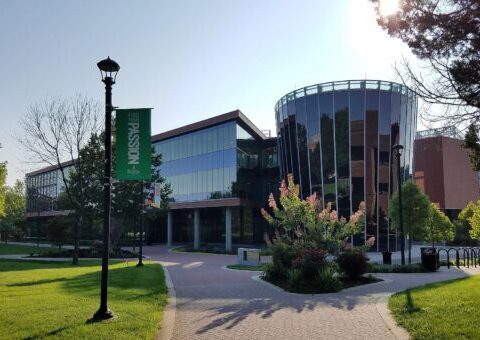Courtesy of Bowie State University Newsroom,
Bowie State University will expand its expertise in data science by joining with 11 other institutions, including the University of Maryland Baltimore County, Harvard Medical School and Vanderbilt University, to form an artificial intelligence/machine learning consortium (AI/ML) aimed at advancing health equity and researcher diversity through the National Institutes of Health (NIH).
Artificial intelligence and machine learning is the next level of data science and analytics. Artificial intelligence is the development of computer systems able to perform tasks that normally require human intelligence, while machine learning is the concept that a computer program can learn and adapt to new data without human interference.
The NIH AIM-AHEAD program seeks to expand representation of researchers and communities underrepresented in AI/ML modeling and applications through mutually beneficial partnerships. Faculty and students in Bowie State’s Computer Technology program will help build the computing infrastructure to support training, research, and assessment of the large-scale data being collected by HBCUs and minority serving institutions (MSIs) to better assess the health care needs of underrepresented populations.
“A lot of opportunities developed as a result of what was observed among different communities regarding the impact of health disparities in the incidence of COVID-19,” said Dr. Anika Bissahoyo, Assistant Director for Research, BSU Office of Research and Sponsored Programs. “This initiative is a broader opportunity to support those communities by building a consortium of organizations and partners that already focus on underrepresented communities.”
The AIM-AHEAD coordinating center team consists of four core sections: leadership, data science training, infrastructure, and data and research, which will work in tandem. Bowie State will serve as the only HBCU on the infrastructure core team and will support the National Alliance against Disparities in Patient Health (NADPH) to achieve several milestones, including engaging HBCUs and MSIs to determine their existing data infrastructure. The program is expected to improve the capabilities of emerging technology, but also help HBCUs and MSIs build their capacity in machine learning, data, and analysis to make an impact on health equity issues.
Bowie State offers five curriculum modules used by faculty members within their classes to include data curation, data management, data visualization, data analytics, and machine learning, which has impacted 1,400 students so far. The modules, developed by a multidisciplinary team of faculty, lead by the College of Business and funded by the National Science Foundation, were infused in the areas of accounting, finance, economics, information systems, biology, psychology, and sociology. BSU students who are studying machine learning, artificial intelligence, and data science and analytics will directly assist faculty with carrying out the scope of work for Bowie State University.
“Engaging HBCUs and MSIs will prove to be beneficial in achieving the milestones for the infrastructure core,” said Dr. Lethia Jackson, professor chair, BSU Department of Technology & Security, and co-principle investigator for the AIM-AHEAD infrastructure core. “By partnering with these institutions, we will help NIH determine solutions for health disparities through science driven community research, technology, training, and education in the health sciences.”
Pursing the opportunity to become a part of the consortium has been a collaborative effort campus-wide. In addition to Dr. Jackson, the co-principle investigator, other faculty and staff include: subject matter expert Dr. LaTanya Brown-Robertson, special assistant for Research & Development, College of Business; subject matter expert Dr. Azene Zenebe, chair, Management Information Systems Department; Gale Bassette, special assistant to the Provost for Federal Contracts Administration; and Dr. Velma Latson, assistant professor, Department of Technology & Security. Dr. Latson is also co-director of the HBCU Data Science Consortium—an HBCU-led consortium designed to bring together researchers, academics and others in industry around furthering data science opportunities and collaboration among HBCUs. She is also a member of the South Big Data Hub.

